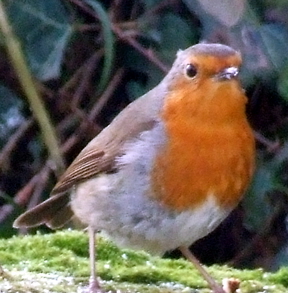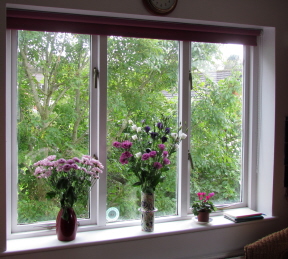When we first meet Kate, it
is her last day at school and she is saying good-bye to her great
friend, Cassandra. Although they do not know it then, their lives are
to be inextricably entwined. Both appear in a number of Marcia's
books. Just for the record, here are the milestones in Kate's life –
indicating in which book the events occur. She was born Katherine
Beauchamp shortly after the end of the second world war. In 1957 she
was sent to a girls' boarding school on the Quantock Hills where she
was to meet Cassandra Mackworth.
Those Who Serve
Cassandra
invites her to the 1963 Summer Ball at the Britannia Royal Naval
College in Dartmouth. Cassandra is going with her fiancée, Tom
Wivenhoe, and it is here that Kate meets her future husband, Mark
Webster. Both Mark and Tom are studying at the college and both are
to enjoy good careers in the submarine service.
Twelve
months later both Kate and Cass are married and Kate gives birth to
her twin boys in the September of 1965. She is to spend the next few
years watching her marriage fall apart, a process exacerbated by
Mark's mental cruelty not just to her but, and this is even worse as
far as Kate is concerned, to their sons. Inevitably they separate
and, in the March of 1976, she is back in Devon and working in a
second hand bookshop. An intense affair with the owner of the
bookshop ends when she fears that it is damaging her twins. Finally
it is Mark who seeks a divorce, which he does in 1981, and for the
next few years Kate is not only lonely but has difficulty in making
ends meet as she has refused to take anything from Mark on condition
that he continues to support the twins who, like the children of most
naval officers at that time, are at boarding school.
Thea's Parrot
One of
Kate's friends, Felicity Mainwaring, dies and, much to Kate's
astonishment, leaves everything to her. Some eighteen months later
she is to meet the famous artist David Porteous who is trying to find
Felicity. He is taken aback to find a painting that he had given
Felicity hanging on the wall in Kate's house. Gradually he tells Kate
all about his relationship with Felicity which he had seen as a mild
summer flirtation but she had taken far more seriously. To the
surprise of both, they find themselves becoming more and more
attached to each other. Finally, in 1991 and between books, they
marry.
Apart from a
passing reference in The Dipper and a brief flash-back in
Starting Over, the next time we meet Kate is in Echoes of
the Dance. It is 2004 and life has just dealt her two blows and
she is grieving for David and her golden retriever.
Roly, whose son
looks after Kate's garden, lives on the northern edge of Bodmin Moor
in Cornwall. He is fostering a retriever bitch whose owner has died
and he invites Kate down in the hope – one to be fulfilled – that
she will give Flossie a home. It is during this book that Roly
introduces Kate to Bruno Trevannion. We first meet Bruno and the
mini-estate called Paradise in The Golden Cup. Included in
Paradise is a row of four cottage, once used by boat builder, and one
of these is empty following the departure of a tenant. Kate's house
is now far too big for her and she has decided to sell but (and
Marcia and I both sympathise with this) has no idea what she wants to
buy. To give herself a breathing space, she decides to become Bruno's
tenant, a move which is, of course, a drastic down size with the
result that much of her furniture has to be left in store.
Now,
in Marcia's next book, The Sea Garden, we
revisit Kate – and Cassandra. You will, however, have to wait until
it is published to find out how life has been treating her over the
last four or five years. Furthermore, through some flash-backs, we
learn more about what was happening to both girls between leaving
school and marrying. Enjoy.
 |
| The River Tamar at high tide on a rather nice day. We are looking upstream from The Sea Garden. |
The
Jackdaw Jottings
One
slight fear we had when we moved into our tree house was that we
would miss the birds that had been such an important part of our
lives. Certainly there was no evidence that any visited other than an
empty peanut holder that hung on a bracket over the railing around
the balcony. This we duly filled and waited – and waited – and
waited.
Meanwhile
the area was echoing to the harsh contact calls of the local jackdaws
who spend their time up at this end of the village. They have a
'lookout' in the form of three tall conifers in a neighbour's garden.
From there they fly out on forays, perching on roof tops and
chimneys, peering into gutters, and dropping down to grab any small
morsel that they can find. No one could possibly miss the jackdaws –
or so I thought.
Thinking
it would be nice to show you another photograph of one of these
enchanting (if irritating) birds, I strolled down to the village with
camera at the ready. A middle chap came out of his house, looking
somewhat puzzled, and asked me what I was doing.
'I'm
taking photographs of the jackdaws,' I explained.
'The
what?'
'The
jackdaws.' Seeing a look of utter bewilderment on his face I added,
pointing, 'Those black birds'.
'Birds?
Oh, them.'
Yes,
them that you see here is two of them.
 |
| Sooner or later I shall take a picture which does not show them in silhouette against the sky. |
Now we
are beginning to see more than jackdaws. With a bit of judicious
feeding on the balcony we have a blackbird, a robin, a number of blue
tits, a few great tits, one coal tit and, much to Marcia's joy
because she loves them, a small flock of chattering long tailed tits
that now call in twice a day – we have obviously become a part of
their daily circuit.
 |
| Blackbird |
 |
| Robin |
 |
| Blue Tit |
 |
| Coal Tit and Great Tit at rear |
 |
| Long Tailed Tit |
And, of course, jackdaws.














